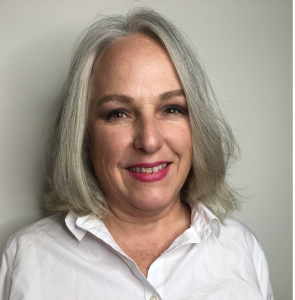August 20, 2018
Women’s Equality Week Q&A with Betsy Weatherhead
Posted by Timia Crisp
For the entire week, we are celebrating prominent female figures in science and science policy to recognize Women’s Equality Day on 26 August.
Today, we are excited to highlight Dr. Betsey Weatherhead, Senior Scientist at Jupiter. Dr. Weatherhead received her Ph.D. from the University of Chicago.

This photo was taken right after I found out I was recognized for my contributions to environmental science. It’s a wonderful silver lining when your colleagues pull back and say, “Good job!”
Who or what has inspired you to pursue your research? Research, pushing the boundary between what is unknown and what is known, is the most exhilarating, fun, and fascinating job I can think of.
What is an obstacle you have had to overcome to get to your current position? Constant learning comes with the job–it’s not easy, but the rewards are there. It’s like being in grad school, but without any advisers to help.
Did you have any important mentors in your career, and how did they impact you? Dr. Chandrasekhar (Nobel, 1983) told me that each field is different, and we need to adapt in style, focus and methods of communication. Otherwise, we can’t be productive.
What should be the future priorities for scientific research in the U.S.? We need to double down on our climate observations: set priorities, encourage innovation, and hold the course. Every major advancement in the Earth sciences has started with our observations.
How can the U.S. ensure that it continues to play a leading role in scientific discovery? The U.S. needs to encourage constructive, inclusive debate to allow new ideas for Earth science to flourish. Politics has pushed us away from this sort of open-minded debate; as scientists, we need to hold to our principles and continue to question and test theories.
What discovery do you hope is made in your lifetime? I hope we can understand the oceans better, improve on our simplified versions of ocean turn-over and understand the role of the deep in the full Earth system.








